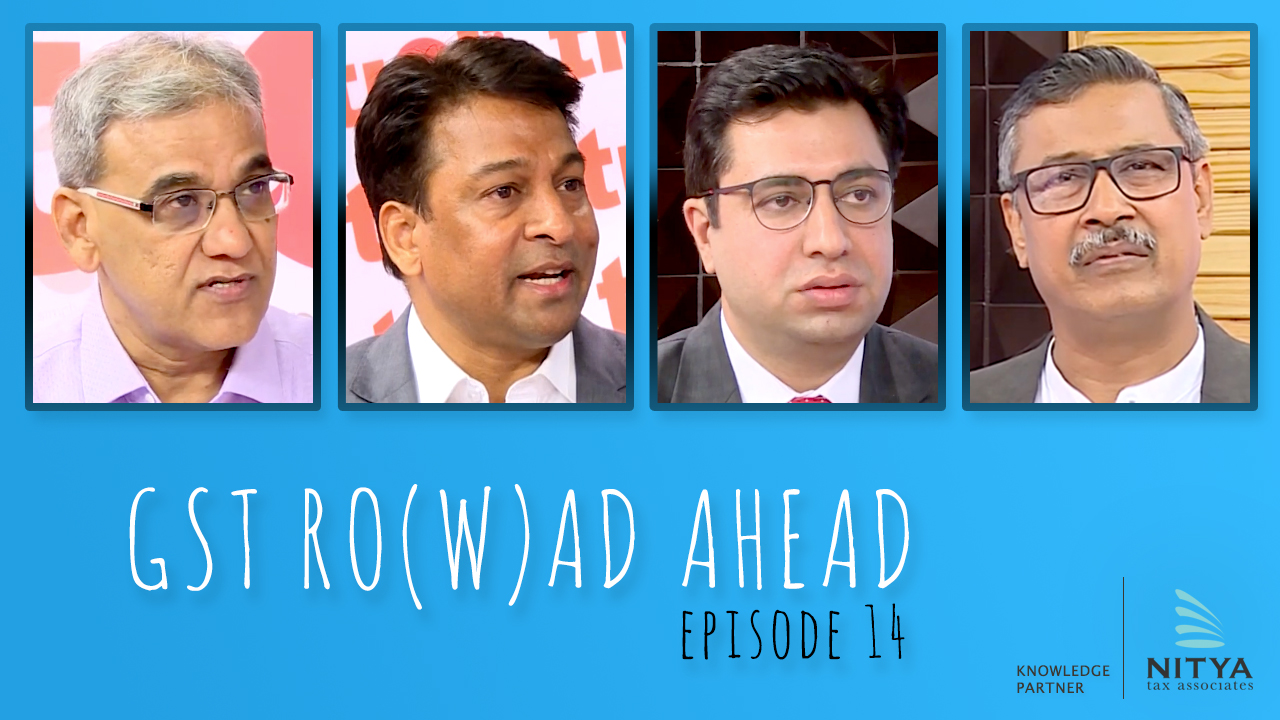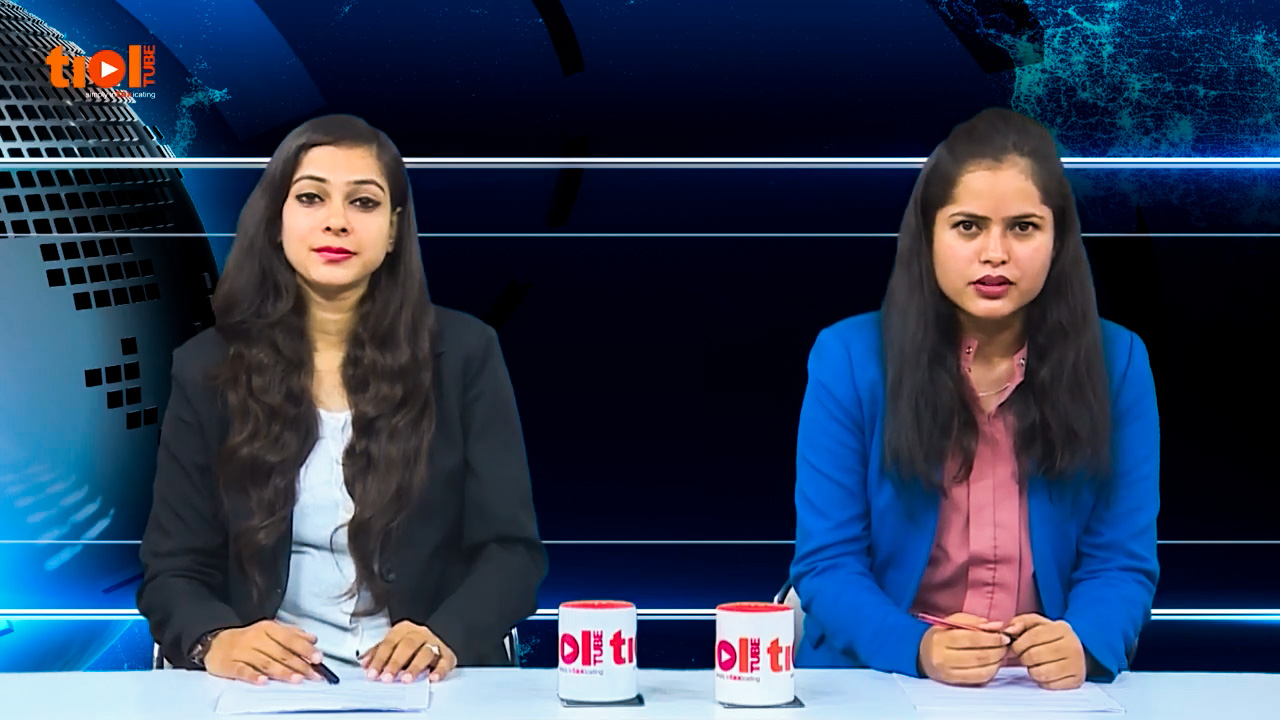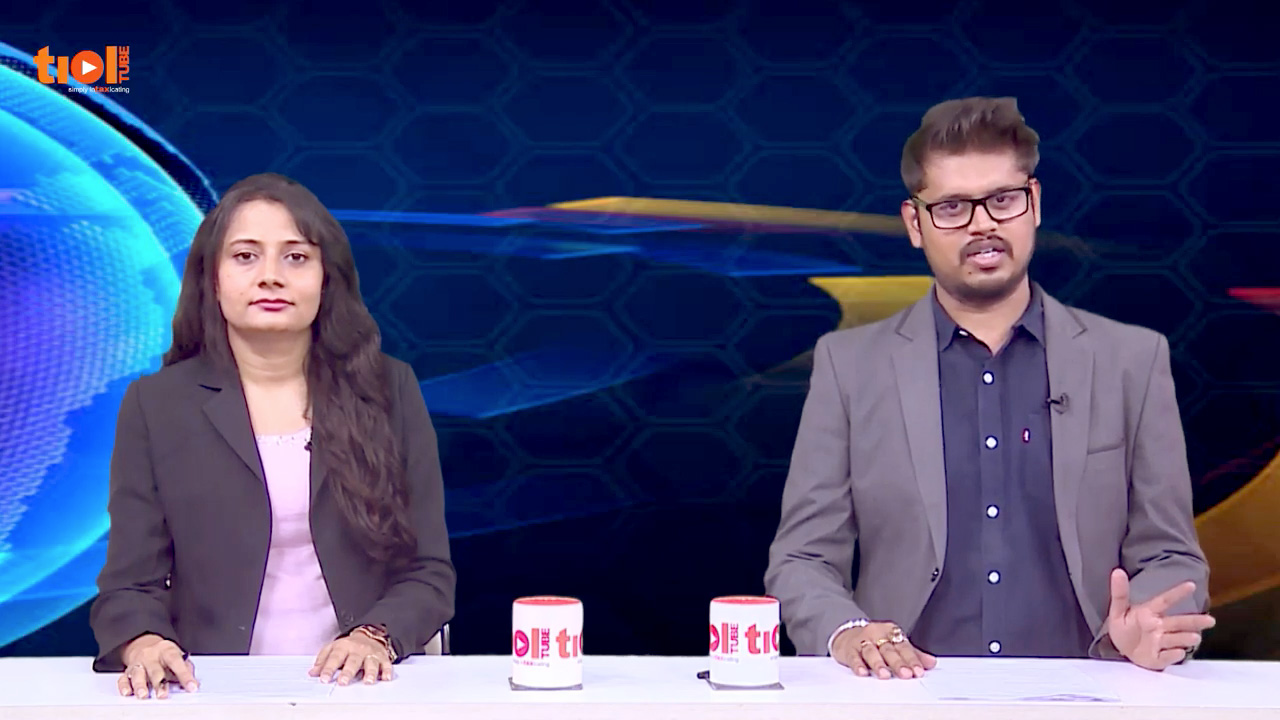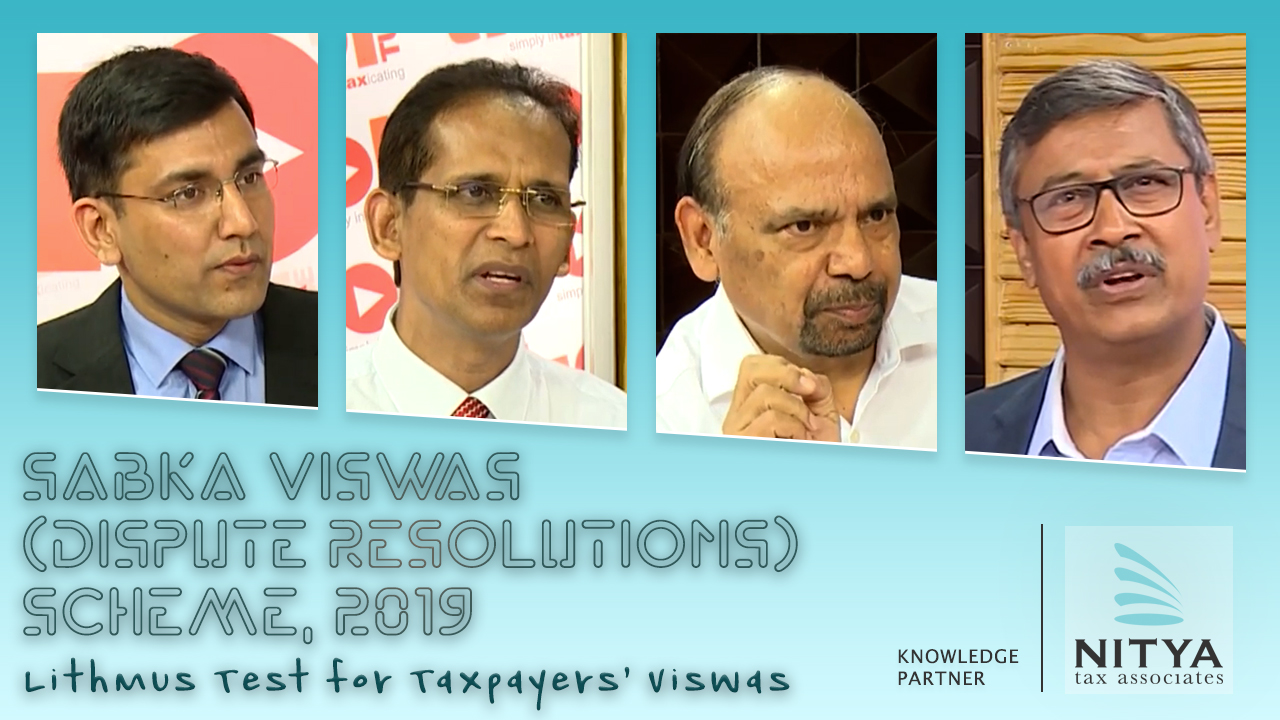|
SERVICE TAX 2019-TIOL-2740-CESTAT-MAD
CN Mani Vs CGST & CE
ST - The assessee is engaged in providing BAS - Proceedings were initiated against assessee for short payment of service tax - The Tribunal vide Final Order dt. 10.08.2017 set aside the demand for the extended period and directed the original authority to quantify the demand falling within the normal period - By order dt. 27.09.2018, the Additional Commissioner quantified the demand in terms of normal period as well as interest liability - The said amounts were appropriated from the amount already paid by assessee - Since there was excess amount paid by assessee, they filed the refund claim on 08.10.2018 - The original authority rejected the refund claim observing that it is barred by limitation when computed from the date of passing of the order by the Tribunal - It is only after re-quantification as per the direction of Tribunal, the issue of refund would arise - Thus, when computed from the date of adjudication by the Additional Commissioner, who is directed to re-quantify the demand for normal period, the refund claim is filed within time - It is also to be considered that the amount deposited during pendency of the litigation is nothing but a predeposit - Therefore, on this ground also, the assessee succeeds for refund - The impugned order denying refund is set aside: CESTAT
- Appeal allowed: CHANNI CESTAT
2019-TIOL-2739-CESTAT-MAD
Scintel Technologies Pvt Ltd Vs CGST & CE
ST - The assessee is engaged in export of services and they filed refund claim under Rule 5 of CCR, 2004 r/w Notfn 27/2012-CE (NT) - The Department rejected the refund claims alleging that the assessee has not complied with Clause 2(h) of the Notfn - The said condition does not require the assessee to reflect the amount debited in their ST-3 returns - It is sufficient if the assessee debits the amount claimed as refund in their accounts - There is no dispute that the assessee has not debited the amount in their account - The rejection of refund claim on the allegation that the assessee has not complied with condition 2(h) of the Notfn is unjustified and is set aside: CESTAT
- Appeals allowed: CHENNAI CESTAT
CENTRAL EXCISE
2019-TIOL-2738-CESTAT-MAD
Sri Kaliswari Metal Powders Pvt Ltd Vs CGST & CE
CX - Appellants are engaged in the manufacture of Aluminium Powder and Aluminium Paste - the contention of the Department is that the appellants were allowing cash discount of Rs.4/- per kg on Aluminium Powder to all buyers who were making 100% payment in advance - however, they were allowing cash discount of Rs.5/- per kg to M/s. Sri Kaliswari Fire Works - the contention in the first SCN dated 30.3.2011 relating to Appeal No. E/40697/2013 is that M/s. Sri Kaliswari Fire Works is a partnership firm consisting of 18 partners and out of the 18 partners, 17 partners jointly hold 55.87% shares in the appellant's company - hence, the appellants and M/s. Sri Kaliswari Fire Works are associated and related persons - the contention in the second SCN dated 8.12.2011 relating to Appeal No. E/41951/2013, is that M/s. Sri Kaliswari Fire Works Pvt. Ltd. consists of 30 shareholders and out of the 30 shareholders, 27 shareholders hold 94.29% shares in the appellant's company - hence, the appellants and M/s. Sri Kaliswari Fire Works Pvt. Ltd. are associated and related persons – alleging undervaluation, demands confirmed, penalties imposed – on appeal, the Commissioner (Appeals) upheld the adjudication orders and rejected the appeals – assessee in appeal before CESTAT.
Held: Contention of the appellant indeed has merit - as per the SCN itself, the appellants were supplying their goods to various customers and not just to related persons - as per the Central Excise Valuation (Determination of Price of Excisable Goods) Rules, 2000 [Valuation Rules], rule 9 would be applicable when the assessee sells the goods only to a related person – it is found that the CBEC, in the Circular dated 1.7.2002 relied upon by the appellant, has clarified that rule 9 cannot be applied in such cases when goods are sold partly to related persons and partly to independent buyers and that it covers only those cases where all the sales are to related persons only - in the circumstances, it would be in the fitness of things that the matter is once again re-looked into by the adjudicating authority - so ordered - in any case, irrespective of the final outcome of such de novo adjudication, it is noted that the entire issue has emanated out of an interpretational dispute on the applicability or otherwise of rule 9 of the Valuation Rules - this being so, imposition of penalties under section 11AC of the CE Act is not warranted - so ordered - the appeals are partly allowed and partly remanded on above terms : CESTAT [para 6, 7, 8.1, 8.2, 9]
- Appeals partly allowed/partly remanded: CHENNAI CESTAT
2019-TIOL-2737-CESTAT-KOL
Maithan Alloys Ltd Vs CCE & ST
CX - The assessee is a manufacturer of Ferro Alloys on which central excise duty is being paid - In the course of business, assessee company pays remuneration to its whole time directors which has fixed as well as variable components - The Department has raised demand of service tax under reverse charge mechanism on the said remuneration paid to the whole time directors in terms of Notfn 30/2012-ST as amended - The whole time director is essentially an employee of the Company and accordingly, whatever remuneration is being paid in conformity with the provisions of the Companies Act, is pursuant to employer – employee relationship and the mere fact that the whole time director is compensated by way of variable pay will not in any manner alter or dilute the position of employer – employee status between the company assessee and the whole time director - When the very provisions of the Companies Act makes whole time director responsible for any default/offences, it leads to the conclusion that those directors are employees of the assessee company - Further, the assessee has duly deducted tax under section 192 of the Income Tax which is the applicable provisions for TDS on payments to employees - This factual and legal position also fortifies the submission made by assessee that the whole time directors who are entitled to variable pay in the form of commission are 'employees' and payments actually made to them are in the nature of salaries - This factual position cannot be faulted in absence of any evidence to the contrary - The decision of the Tribunal in Rent Works India 2016-TIOL-1199-CESTAT-MUM has clearly set the legal position that when the Income Tax Department considers payment in the nomenclature 'consultancy fee' as salaries, on which TDS is also made, the said payments cannot be said towards rendition of taxable service for levy of service tax - Demand of service tax on remuneration paid to whole time directors cannot be sustained and hence set aside - Since demand of service tax is set aside, penalty and interest are also not sustainable: CESTAT
- Appeal allowed: KOLKATA CESTAT
CUSTOMS 2019-TIOL-2233-HC-MAD-CUS
SA Trading Company Vs ACC
Cus - Petitioner challenges the order of provisional release warranting them to execute bank guarantee of Rs.25 lakhs and seeks waiver of demurrage and detention charges - It is the case of the Revenue that the subject cargo was overvalued when compared with similar item available in the market - It is also the case of the customs that there is a misclassification of the goods inasmuch as whereas the petitioner claimed classification under CTH 87089900, it is the case of the Revenue that the subject matter goods are multipurpose split pin classifiable under CTH 7318 (73182400) and that if the classification of the subject goods falls under CTH 7318 as claimed by the Revenue, the IGST refundable to the petitioner is 18%, whereas if the subject matter goods is classifiable, as claimed by the petitioner, under CTH 8708, the IGST refundable is at the rate of 28% - Therefore, it is claimed by the Revenue that the exporter intended to claim higher rate of IGST refund and with such intention, the importer has not only misclassified the goods but also overvalued the same; that the subject goods intended for export, as per the Indian market price, is valuable only at the rate of Rs.10,125/- per bill of entry, whereas the same was valued by the exporter at the rate of Rs.46,11,750/- per bill of entry - It is also stated that in both shipping bills, it was shown that the IGST amount paid by the exporter is Rs.12,91,290/- each and that the same would be refundable to the exporter once the export is made.
Held: According to the Revenue, the very classification of the subject matter goods itself is wrong and consequently, the rate of IGST refundable to the exporter also varies - as per the claim made by the petitioner based on their classification, they are entitled to refund of 28% IGST whereas according to the Revenue, it is only 18%, as the subject matter goods are classified under different CTH - Court, at this stage, is not going to express any view on the merits of the contentions raised, since admittedly the adjudication proceedings is yet to take place - However, in the meantime, as the petitioner is intending to export the goods and consequently, sought for release of the same for export, only issue that is to be gone into and decided in this case as to whether the conditions imposed by the customs for releasing the goods for export are onerous or justifiable - Board Circulars Circular No.1/2011-Customs dated 04th January 2011 and Circular No.30/2013 dated 05.08.2013 would clearly indicate that the goods detained for investigation, are sought to be provisionally released for export, the exporter is bound to execute a bond of an amount equivalent to the value of the goods apart from furnishing an appropriate security in order to cover the redemption fine and penalty - insofar as the execution of the bond is concerned, the petitioner is not having any issue and their objection is only against the bank guarantee sought for a sum of Rs.25 lakhs - Bench finds that the claim made by the customs for executing such bank guarantee is with some force and justification based on the allegations made against the petitioner viz., misclassification of the goods, overvaluing the same and intended refund claim of IGST at the higher rate - referred circulars empower the customs to insist for such requirement and moreover these circulars are not under challenge - In such circumstances, even before completing the adjudication process, if the exporter seeks for release of the goods for export, certainly it is for them to comply with the conditions imposed in the impugned order - In this case, in fact, the customs has not refused to release the goods - On the other hand, provisional release is ordered subject to the execution of bond and furnishing of bank guarantee - Bench finds that the conditions are not onerous and, therefore, if the petitioner intends to export the goods, it is for them to safeguard the interest of the Revenue by providing the bond and appropriate security in order to cover the redemption fine and penalty - Needless to say that if the petitioner furnishes bank guarantee and ultimately succeeds in the adjudication process, it is always open to them to get the bank guarantee released - After all, it is only to safeguard and secure the interest of the Revenue, the bank guarantee is sought to be executed - no arbitrariness or unreasonableness found in such demand - order impugned does not require any interference - However, if the petitioner finds it difficult to mobilize the bank guarantee for the said sum of Rs.25 lakhs, alternatively it is open to the petitioner to furnish immovable property security to the value of the said sum, to the satisfaction of the first respondent and if the petitioner so chooses to furnish immovable property security to the said sum instead of furnishing bank guarantee, the same shall be considered by the first respondent and appropriate orders shall be passed accordingly - Petition disposed of: High Court [para 9 to 16]
- Petition disposed of: MADRAS HIGH COURT
2019-TIOL-2224-HC-MAD-CUS
Evershine Smelting Alloy Pvt Ltd Vs ADDL CC
Cus - The petitioners are said to be engaged in business of importing and trading of various products including Tin Ingots - In the course of such business, the imports of Tin Ingots made by petitioners said to be Malaysian Origin under the ASEAN India Free Trade Agreement, vide Notfn 46/2011, were subjected to investigation and consequently, the Customs authorities doubted the origin of goods imported - Resulting out of such investigation, the SCNs were issued to petitioners - Though the petitioners sought to raise the jurisdictional issue, such issue, cannot be put against the Officer, who issued the SCNs, when such authority is admittedly, having competency and jurisdiction to issue the same - Merely because, it is contended by petitioners that the investigation before issuing the SCNs was conducted by some other authority, even assuming such contention is factually and legally correct, still that cannot be a ground to question the jurisdiction of the authority, who issued the present SCNs, when admittedly, the same is issued by the competent authority - Needless to say that all these points, can be raised before Adjudicating Authority by filing their objections to the SCNs - While considering the next contention viz., there is a dispute between two countries relating to origin determination, it is admitted by petitioners that no such admission is made in SCNs - Therefore, again, the said contention, as a matter of fact, needs to be raised and agitated before the Adjudicating Authority by filing reply - Therefore, without expressing any view on the merits of the claim made by petitioners, these Writ Petitions are dismissed as not maintainable only on the reason that the petitioners are not entitled to maintain the writ petitions as against the SCNs - However, liberty is granted to the petitioners to raise their objections before the authority, who issued SCNs, within a period of four weeks: HC
- Writ petitions dismissed: MADRAS HIGH COURT
2019-TIOL-2736-CESTAT-MUM
Apollo Roadways Vs CC
Cus - Assessee is in appeal against impugned order imposing penalty on them - The importer on record is not in appeal and, thereby, findings of adjudicating authority on leviability of duty and confiscation of goods is not under challenge - In impugned order, it has been held that, with intent to divert goods, imported against conditional notification of exemption, some of the assessees conspired to obtain, through submission of false documentation, advance licences which would enable clearance without payment of duty - It is seen from impugned order that the findings pertaining to the role of transport undertakings is sketchy and devoid of facts that would link the activity of transportation with knowledge of the illicit nature of the movement - Any transporter, in the commercial sense, is merely required to deliver goods at the consigned address; there is no evidence here that the delivery had been effected to a different location - It is also not in the nature of their professional commitment to require establishment of provenance of articles carried by them or to be conversant with the various schemes of import or provisions of Customs Act, 1962 - Nor are they required, under section 151 of Customs Act, 1962, to act as watchdogs of officers of customs - In the absence of any evidence of their awareness that the goods transported by them should legally have been delivered at the address provided for in the advance licences, the imposition of penalty against them is not justified - Consequently, the penalties imposed on Shri Gulbir Singh Anand and Shri Naresh D Bhanushali are set aside - The findings against Shri Goel, as the prime conspirator, is based on a confession recorded from him as well as the corroboration of the confession from the other noticees - It is also on record that the SCN, as originally issued, did not include him as a noticee and has no mention of him anywhere within - The corroboration of the confession is, therefore, inconsistent with statements recorded before the confession obtained from Shri Goel - It is only with a reconciliation of inconsistency that the corroborative statements could be acceptable for recording a finding - Such a reconciliation is markedly absent in impugned order - It would be in the natural order of human behaviour to pass the buck to conveniently available individual - The convenience of that availability would have to be discounted in adjudication order for corroborative statements to have credibility - In light of foundation itself being questionable and the leap to isolation of prime mover in conspiracy being in jeopardy, it would be appropriate for the adjudicating authority to apply its mind to the various challenges made by Shri Goel to come to a conclusion on the nature of his role in the act of smuggling - The impugned order is set aside and the adjudicating authority is directed to decide afresh - The appeals of S/Shri Gulbir Singh Anand and Naresh D Bhanushali are allowed by setting aside the penalties and that of the others are allowed by way of remand: CESTAT
- Matter remanded: MUMBAI CESTAT |
|







